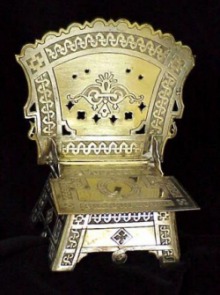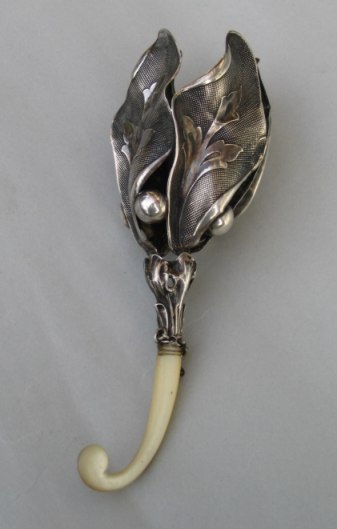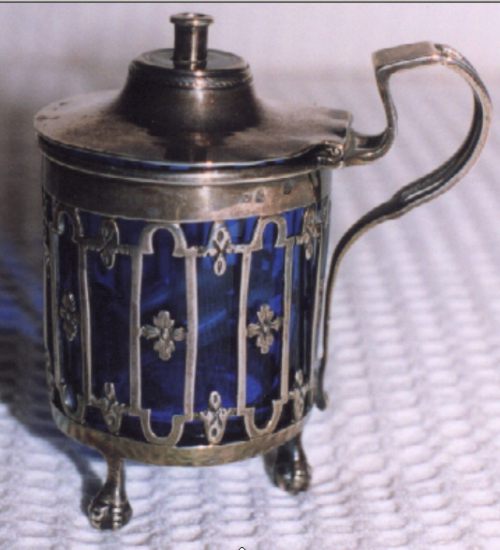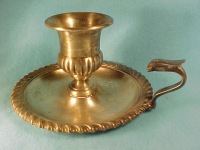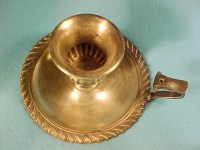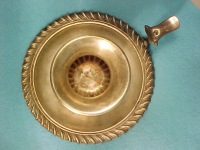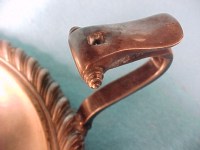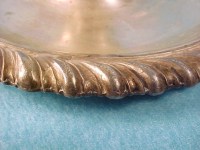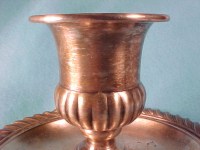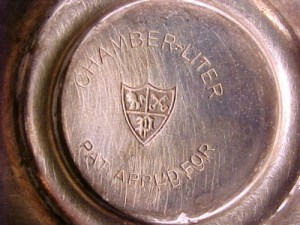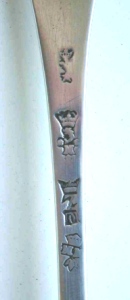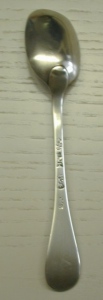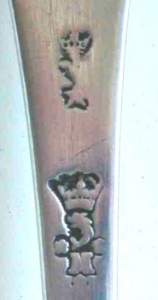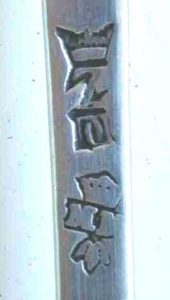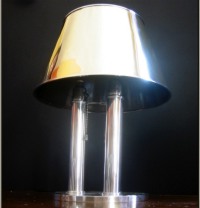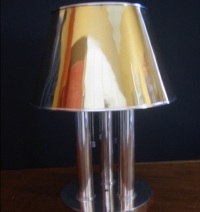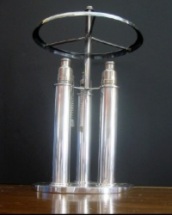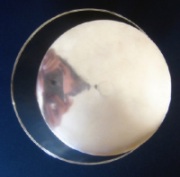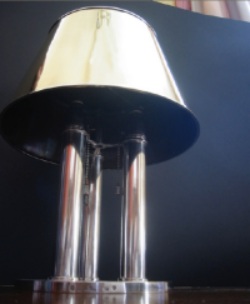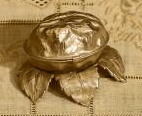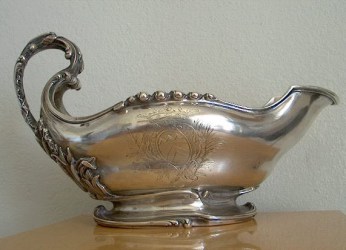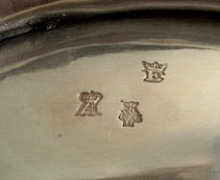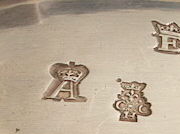 newsletter # 13 MAY 2005
newsletter # 13 MAY 2005www.ASCASonline.org
email: silverassociation@yahoo.it
|
AN IMPORTANT COMMUNICATION As you may see, notwithstanding my appeal in the April Newsletter,
this is a full 'Georgian-Italian' newsletter (translation: a newsletter
containing only articles written by Giorgio Busetto and his small 'band'
of Italian supporters). New articles for ASCAS website
List of membersWelcome to new ASCAS members: Carol Botti - USA
Members' Window # 13
Questions from ASCAS membersRick Bliss writes:
(click on images to enlarge)Do any members recognize this hallmark?
(click on images to enlarge)Do any members recognize the mark of this candlestick?
(click on images to enlarge)What a delightful story! (click on images to enlarge)
|
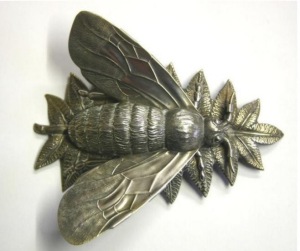 |
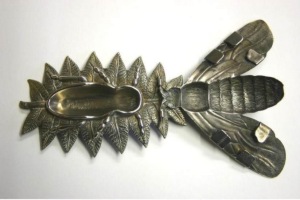 |
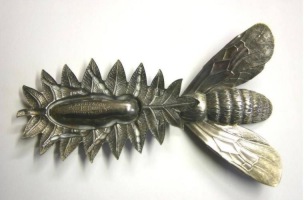 |
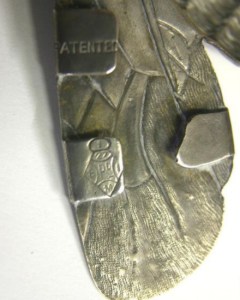 |
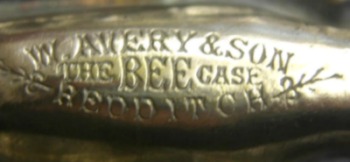 |
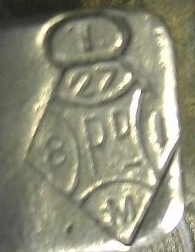 |
(click on images to enlarge)
Perhaps one of ASCAS members would know the use of this object and
has a better acquaintance of W. Avery & Son production....
Maurizio Perota
Another interesting information for an approximate dating of English
electroplated silver may be the lozenge patent mark used by British
Patent Office between 1842 and 1883.
click here
Replies to ASCAS questions
Andrea Perego writes about the gravy boat of Ann Schrad on
April
Newsletter :
The 'A' with a crown seems to be the mark of 'charge' used in Paris
1744-1750.
The 'E' with that crown looks like the mark of Paris, 'maison commune'
for the year 1745.
Given this concordance, and from its shape as well, I would believe the
gravy dish was made in Paris in 1745. But I'm unable to see and
recognize the third mark in your pic.
Andrea Perego
Ann now supplies a new picture of the marks. The 'third mark' is now
readable as the mark of silversmith 'CCH'. Maybe someone will be
able to identify it.
Carole McKillop-Mash writes about bowl and tray of Greg Faia on
April
Newsletter :
I'm afraid that Greg and his Wife have been misinformed. The marks on
their lovely bowl and tray are Not English Hallmarks.
Kind regards
Carole Mckillop-Mash

 |
Obviously these marks refers to silver plate (the maker remains
unidentified) and not to sterling silver.
ASCAS RESOURCES
The page of
ASCAS
RESOURCES has a new addition.
Besides to website addresses there is now a list of books related to
silver (hallmarks, silversmiths, history of silversmithing, etc.).
I hope you'll appreciate this novelty.
A NEW FORUM FOR SILVER MARKS
Tom Guarrera writes:
Although time for managing such things is always short, I've decided
that 925-1000.com needs a Forum for the discussion and furtherance of
hallmarks knowledge.
I've set up the forum software and plan to open it around May 1, the
site is already up, but it is presently open only for registration.
Please give it a look, the address is
http://www.925-1000.com/forum/index.php
I would appreciate it if you could mention it in your next newsletter
and give an invitation to our fellow ASCAS members to drop in and
contribute.
Hope all is well.
Best Regards,
Tom Guarrera
The well known 'Silver Magazine' on its May/June 2005 issue publishes my letter on 'Another way of Documenting a Silver Collection'.
The letter follows Bill Chandler's article on March/April issue of 'Silver Magazine' and offers my suggestions for a less conventional way of cataloguing and keeping documentation of a silver collection.
The letter is available on the 'Preview the current issue' of 'Silver Magazine' website (Silver Magazine is published bimonthly by Arts Media Group, Cleveland, Ohio)
Giorgio Busetto
Closing our May newsletter I hope you have appreciated its content.
Your comments, suggestions and advices will be of great help.
My thanks to Franco Bellino, Rick Bliss, Jayne Dye, Tom Guarrera,
Giorgio Guida, Kavin and Cynthia Johnson, Mathieu Lanthier, Carole
Mckillop-Mash, Christine and Denis Mercier, Maurizio Perota for their
precious contributions.
Giorgio Busetto
Secretary
email: silverassociation@yahoo.it |
